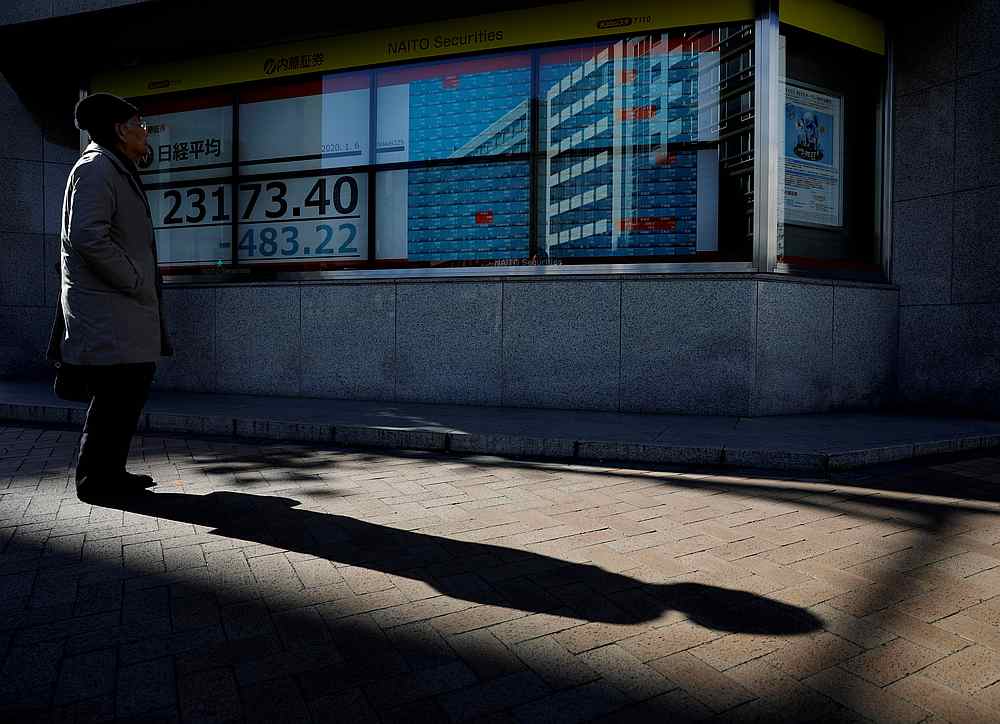TOKYO, July 27 — Tokyo stocks opened lower today, playing catch-up after a four-day weekend, with global risk aversion on intensifying China-US tensions.
The benchmark Nikkei 225 index fell 1.12 per cent or 255.66 points to 22,495.95 in early trade while the broader Topix index lost 1.04 per cent or 16.29 points to 1,556.67.
“Selling is likely to lead trade, with investors discouraged by slack US stocks and the yen’s rise... during Tokyo’s holidays,” said Yoshihiro Ito, chief strategist at Okasan Online Securities.
“There are concerns that the US-China conflict could intensify further via a chain of retaliatory measures,” he said in a note, adding resurging coronavirus cases in some US states also weighed on sentiment.
The dollar was trading at ¥105.95 (RM4.27), unchanged from New York Friday afternoon but well lower than the upper half of the ¥106 range before Tokyo shut for the long weekend.
A stronger yen is a negative for Japanese exporters and often dampens buying on the Tokyo market.
While Tokyo was shut, relations between the world’s two superpowers took another negative turn.
China ordered the closure of the American consulate in Chengdu in retaliation for the United States shuttering Beijing’s diplomatic mission in Houston.
Besides the tensions and concerns over a US economic recovery, “the market is also concerned over the inability of US politicians to find an agreement on the next round of stimulus ahead of the expiry of US unemployment benefits this Friday,” National Australia Bank said in a note.
In Tokyo individual stocks trade, ANA Holdings tumbled 2.15 per cent to ¥2,313.5 after the Nikkei business daily reported the airline group was on course to report a record operating loss for the last quarter.
Sony fell 1.63 per cent to ¥8,125 and Toyota slipped 0.34 per cent to ¥6,706.
High-technology stocks also fell with microchip-testing equipment maker Tokyo Electron dropping 2.79 per cent to ¥28,830 after Intel plunged on Wall Street Friday on the announcement that its next-generation chips would be delayed by manufacturing problems. — AFP






















